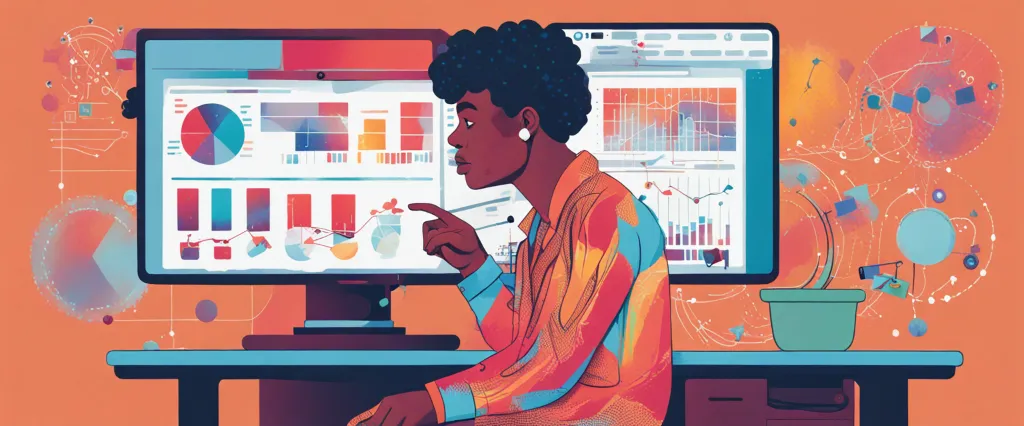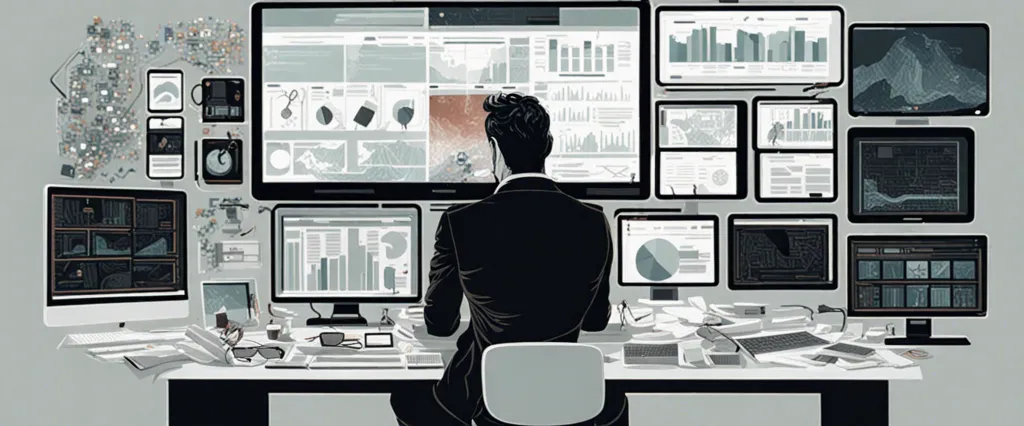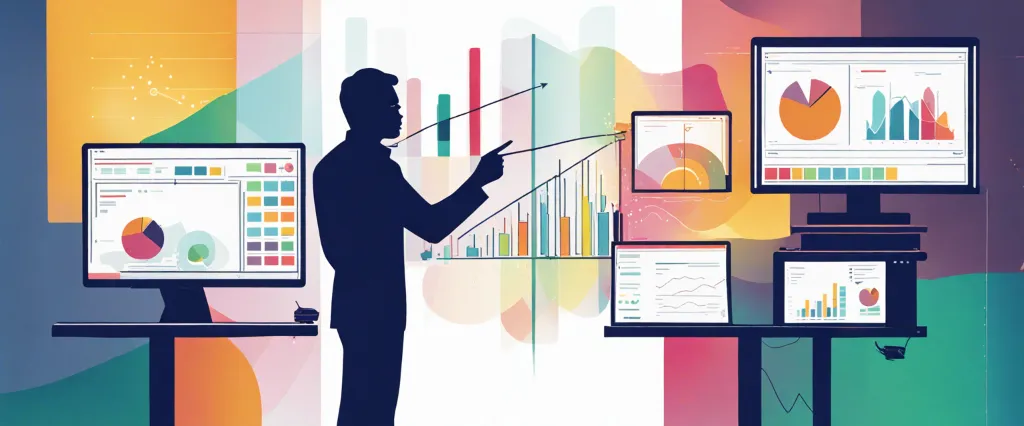
Christian Rudder, a man known for unraveling the secrets of our digital lives through data, is an individual whose insights have revolutionized the way we understand human behavior in the online realm. As the co-founder of OkCupid, a popular online dating platform, Rudder possesses a profound understanding of the intricacies of human connections and interactions in the virtual space. With his book “Dataclysm: Who We Are (When We Think No One’s Looking),” he provides an unprecedented exploration into the depths of our online selves, shedding light on the patterns, biases, and desires that define our identities in the digital age. In this interview, we delve into Rudder’s groundbreaking research, his thoughts on privacy, and gain valuable insights into the ever-evolving landscape of online interactions. Get ready to unravel the mysteries of the virtual world as we embark on an illuminating conversation with the data wizard himself, Christian Rudder.
Christian Rudder is a distinguished American author, entrepreneur, and data scientist, widely recognized for his significant contributions in the field of online dating and social networking. With his unique blend of analytical prowess and creativity, Rudder has played a crucial role in transforming how we understand and navigate human relationships in the digital age.
Born in Little Rock, Arkansas, Rudder developed an early interest in mathematics and computer science. He went on to study mathematics at Harvard University, where he honed his skills in data analysis and statistics. Rudder’s deep fascination with human behavior and its intersection with technology led him to co-found the world-renowned online dating website, OkCupid, in 2003.
As the co-founder and former President of OkCupid, Rudder pioneered the application of big data analytics to decipher the intricacies of human interactions and preferences within the realms of online dating. He delved into the vast amount of data generated by users on the platform to uncover fascinating insights about love, attraction, and compatibility. Rudder’s innovative approach to analyzing this data not only revolutionized the online dating industry but also shed light on the broader dynamics of human relationships.
In 2014, Rudder published his critically acclaimed book, “Dataclysm: Who We Are (When We Think No One’s Looking),” which became a New York Times bestseller. In this book, he examined the patterns and trends hidden within the vast sea of data collected from social networks, online dating platforms, and other digital sources. Rudder’s illuminating observations challenged common societal assumptions and provided a fresh perspective on topics ranging from race and politics to love and friendship.
Beyond his achievements in the world of data science, Rudder’s exceptional storytelling abilities have captivated audiences worldwide. He effortlessly weaves complex data sets into narratives that engage and educate readers, making his work accessible and thought-provoking to a wide range of audiences.
With his expertise in data analysis and his keen understanding of human behavior, Christian Rudder continues to be a leading voice in the realm of online dating, social networking, and the broader implications of data-driven insights. His unique ability to extract meaningful stories from data and his relentless curiosity keep him at the forefront of exploring the ever-evolving landscape of human connections in the digital era.
10 Thought-Provoking Questions with Christian Rudder
1. Can you provide ten Dataclysm by Christian Rudder quotes to our readers?
Dataclysm quotes as follows:
a. “The Internet is showing us humanity in intimate detail – our pettiness, our meanness, our grace.”
b. “What you do when you think nobody’s looking determines what you’ll be when you can’t help it.”
c. “The things we’re willing to lie to each other about are the things we’re most uncomfortable seeing in ourselves.”
d. “The blissful naiveté we once had about the permanence of our actions and statements online will soon be gone.”
e. “Love is rooted in moments of irrationality, and the Web forces us to be rational all the time.”
f. “We can learn a lot about human behavior from what people do when they’re unaware they’re being watched.”
g. “The more we date online, the more we’re exploring the physical space of the world, the less we’re actually exploring the individual spaces inside them.”
h. “Sex isn’t linear. You don’t become a 45-degree angle of person once you’re a partner.”
i. “Online dating is one place where women do not enjoy a substantial advantage over men, and that’s universal.”
j. “Our thoughts about beauty and attraction are not purely instinctive, but deeply influenced by external factors like advertising and media”
2.What inspired you to explore the insights gleaned from big data in your book, “Dataclysm”? Can you discuss the motivations behind examining the intersections of data science and human behavior?
In writing “Dataclysm,” my motivations behind exploring the insights gleaned from big data were rooted in curiosity and a desire to understand human behavior in a unique way. As a co-founder of the dating website OkCupid, I had access to vast amounts of user data, and I became fascinated by the patterns and trends that emerged from this wealth of information.
Traditional methods of studying human behavior, such as surveys and experiments, often rely on self-reported data which can be biased or subjective. Big data, on the other hand, offered an opportunity to observe real-world behavior in a much more objective and comprehensive manner. I wanted to utilize the power of data science to uncover hidden truths about us as a society and challenge some of the assumptions we hold.
By examining the intersections of data science and human behavior, I hoped to shed light on interesting and thought-provoking insights about our society. I wanted to understand how our digital footprints can reveal aspects of our personalities, preferences, and biases. Ultimately, my motivation was to bridge the gap between data analysis and our understanding of ourselves, sparking dialogue and encouraging a more nuanced view of human behavior.
3.”Dataclysm” delves into the patterns and trends revealed by large-scale data analysis. How do you believe data science can deepen our understanding of human behavior and societal dynamics?
Dataclysm explores how data analysis can uncover patterns and trends to deepen our understanding of human behavior and society. Data science provides powerful tools to uncover hidden insights that were previously inaccessible. By analyzing vast amounts of data, we can gain insights into various aspects of human behavior, such as dating preferences, political beliefs, or cultural trends.
Data science allows us to move beyond anecdotal evidence and personal biases, enabling us to derive more accurate and empirical insights. It provides a lens through which we can observe human behavior at an unprecedented scale, allowing us to uncover underlying societal dynamics and trends that were previously invisible.
Additionally, data science helps us challenge assumptions and identify correlations or predictive models that can inform decision-making and policy implementation. By understanding human behavior and societal dynamics through data, we can make more informed choices, develop targeted interventions, and improve various aspects of our lives, from healthcare to education.
In summary, data science enriches our understanding of human behavior and societal dynamics by revealing patterns, trends, and correlations that were previously hidden, enabling us to make more data-driven and impactful decisions.
4.Your book discusses the ethical implications of big data and privacy concerns. Can you elaborate on the ethical considerations surrounding the collection and use of personal data in data analysis?
The collection and use of personal data in data analysis raises several ethical considerations. First and foremost is the issue of informed consent. Individuals should have clear knowledge of what data is being collected, how it will be used, and the potential consequences of that use. Transparency and providing meaningful choices are crucial in building trust between the data collectors and the subjects.
Respect for privacy is another key ethical consideration. Personal data should be handled with utmost care and protected against unauthorized access or misuse. Anonymization techniques should be employed whenever possible to minimize the risk of re-identification. Additionally, data should only be used for the purposes for which it was collected and not be unnecessarily retained.
Fairness and non-discrimination are also important ethical considerations. Biases in data, whether arising from the collection process or inherent within the data itself, can lead to discriminatory outcomes. Data analysts must strive to identify and mitigate these biases to ensure fair and equitable treatment.
Finally, the potential for unintended consequences and harm should not be overlooked. Data analysis has the power to influence decision-making and shape societal outcomes. Ethical considerations should extend beyond legal compliance to safeguard against unintended negative impacts on individuals or communities.
Addressing these ethical considerations is crucial to ensure responsible and beneficial use of personal data in data analysis.

5.In “Dataclysm,” you examine how data shapes our perceptions and interactions in the digital age. What are some key insights you provide on the impact of data-driven technologies on society and culture?
In “Dataclysm,” I uncover several key insights regarding the impact of data-driven technologies on society and culture in the digital age. One crucial aspect is the concept of targeted advertising, where our online behaviors and preferences are tracked and used to tailor advertisements to our specific interests. While this may seem convenient, it also creates echo chambers and reinforces biases, as we are constantly exposed to content that aligns with our existing beliefs.
Additionally, I highlight how data-driven technologies have transformed the dating landscape. Online dating platforms now rely on complex algorithms and vast amounts of data to match individuals, challenging traditional methods of forming relationships. This has both positive and negative consequences, as it offers more opportunities for connections but also leads to a commodification of romance.
Furthermore, I delve into the world of social media and examine how platforms like Facebook and Twitter influence our behavior and shape our perceptions. Data-driven technologies use our engagement patterns to curate our newsfeeds, creating filter bubbles that limit our exposure to diverse perspectives.
Overall, “Dataclysm” illustrates how data-driven technologies have a profound impact on society and culture, influencing our behaviors, choices, and interactions in ways that are often unseen or misunderstood.
6.”Dataclysm” highlights the power of data visualization in communicating complex insights. How can individuals effectively use data visualization techniques to convey meaningful information to others?
Dataclysm showcases the immense potential of data visualization to unlock hidden patterns and reveal profound insights. When it comes to effectively communicating complex information to others, data visualization techniques can be a valuable tool. Firstly, it is crucial to select the appropriate visualization method that best represents the data and message. Whether it’s through charts, graphs, maps, or interactive dashboards, the method should enhance clarity and engage the audience.
Secondly, simplification is key. By eliminating unnecessary clutter and focusing on the essential information, individuals can ensure that their visualizations convey a clear and concise message. Effective use of color, typography, and shape can aid in highlighting important trends or outliers within the data.
Furthermore, storytelling through data visualization adds a powerful dimension. By creating a narrative or storyline around the data, individuals can captivate their audience and provide a meaningful context for understanding the insights. Incorporating contextual information, annotations, and comparisons can further enhance the impact of the visualization.
Lastly, it is vital to consider the target audience and their level of understanding. Adapting the complexity and level of detail in the visualization to suit the audience ensures effective communication.
In summary, individuals can effectively use data visualization by carefully selecting appropriate visual methods, simplifying complex information, telling a compelling story, and considering the audience’s needs. With these approaches, data can be transformed into a powerful tool for conveying meaningful insights.
7.Your work underscores the importance of context in interpreting data. What advice would you offer to readers seeking to critically evaluate data-driven claims and findings in various domains?
Interpreting data within the appropriate context is crucial for avoiding misinterpretations and drawing accurate conclusions. When evaluating data-driven claims and findings, readers should consider a few key points. Firstly, it is essential to understand the methodology employed to collect the data, ensuring that it is rigorous and reliable. This includes being aware of potential biases and limitations present in the data collection process.
Secondly, readers should be cautious of cherry-picked or selectively presented data, as this can manipulate perceptions and distort the true narrative. Understanding the complete picture by examining all available data and considering alternative explanations is vital for accurate interpretations.
Moreover, readers should critically evaluate the source of data. Understanding the motivations, funding sources, and potential conflicts of interest of those presenting the data is essential in identifying any inherent biases.
Finally, contextualizing data means recognizing that correlation does not always imply causation. It is important to seek additional evidence and avoid jumping to conclusions based solely on associations found in the data.
By being mindful of these factors and critically evaluating data-driven claims within their appropriate context, readers can make more informed judgments and decisions.
8.”Dataclysm” advocates for transparency and accountability in data analysis. How can individuals and organizations promote responsible data practices and mitigate the risks of data misuse or manipulation?
Transparency and accountability are essential in ensuring responsible data practices and mitigating the risks of data misuse or manipulation. To promote this, individuals and organizations can take several steps. Firstly, organizations should adopt ethical guidelines and practices that prioritize the responsible handling of data. This includes obtaining informed consent from individuals before collecting their data and ensuring data is securely stored and protected.
Additionally, organizations should invest in training and educating their employees about responsible data practices, including the importance of unbiased analysis and avoiding manipulation of data. Regular audits and third-party assessments can help maintain accountability and identify any potential areas of improvement.
Individuals can also play a crucial role. By being aware of their data rights, individuals should actively scrutinize the privacy policies and data collection practices of websites and applications they use. They can also support organizations that prioritize transparency and accountability in their data practices, encouraging others to follow suit.
Ultimately, promoting responsible data practices requires a collective effort from both individuals and organizations, ensuring transparency, accountability, and the protection of individuals’ privacy.
9.As an author deeply engaged in the study of data science and human behavior, what role do you believe data literacy plays in navigating the complexities of the digital age and harnessing the potential of big data?
As an author deeply engaged in the study of data science and human behavior, I believe that data literacy plays a pivotal role in navigating the complexities of the digital age and harnessing the potential of big data. In today’s information-driven society, it is crucial for individuals to understand how to interpret, analyze, and draw meaningful insights from data. Without data literacy, people can easily be swayed by misinformation, biased narratives, or manipulated data.
Data literacy empowers individuals to make informed decisions, both in their personal lives and within business and policy-making contexts. The ability to critically evaluate data sources, discern relevant information, and extract insights is essential in order to leverage the vast potential of big data and make it work for us, rather than against us.
Furthermore, data literacy fosters a culture of transparency and accountability. When individuals possess the skills to understand and question the data that influences their lives, they can advocate for responsible data practices and demand ethical treatment of individuals’ personal information.
In essence, data literacy is not just a skill; it is an essential tool for individuals to navigate the complexities of the digital age, make informed decisions, and harness the potential of big data in ways that benefit society as a whole.

10. Can you recommend more books like Dataclysm?
a) “Weapons of Math Destruction: How Big Data Increases Inequality and Threatens Democracy” by Cathy O’Neil – This book explores the dark side of Big Data and its impact on society, shedding light on how algorithms can reinforce discrimination and shape our lives without our knowledge.
b) “The Signal and the Noise: Why So Many Predictions Fail – but Some Don’t” by Nate Silver – In this book, Silver, an acclaimed statistician, delves into the world of predictions and reveals why some succeed while others fail, emphasizing the importance of understanding uncertainty and making informed decisions based on data.
c) “Everybody Lies: Big Data, New Data, and What the Internet Can Tell Us About Who We Really Are” by Seth Stephens-Davidowitz – Similar to Dataclysm, this book explores how our online behavior can reveal much about our true selves. It highlights how data analysis can uncover hidden truths and challenge conventional wisdom, using examples from various aspects of life.
b) “How to Measure Anything: Finding the Value of Intangibles in Business” by Douglas W. Hubbard – Focusing on the application of data and measurement in business, this book provides a practical guide on how to measure and quantify seemingly immeasurable aspects. It offers techniques for making better decisions by employing data-driven approaches.
a) “Super Crunchers: Why Thinking-by-Numbers is the New Way to Be Smart” by Ian Ayres – Ayres explores how data analysis and statistical techniques have become powerful tools for decision-making in various fields. This book highlights how data-driven analysis is shaping our world and reshaping traditional approaches to problem-solving.
c)